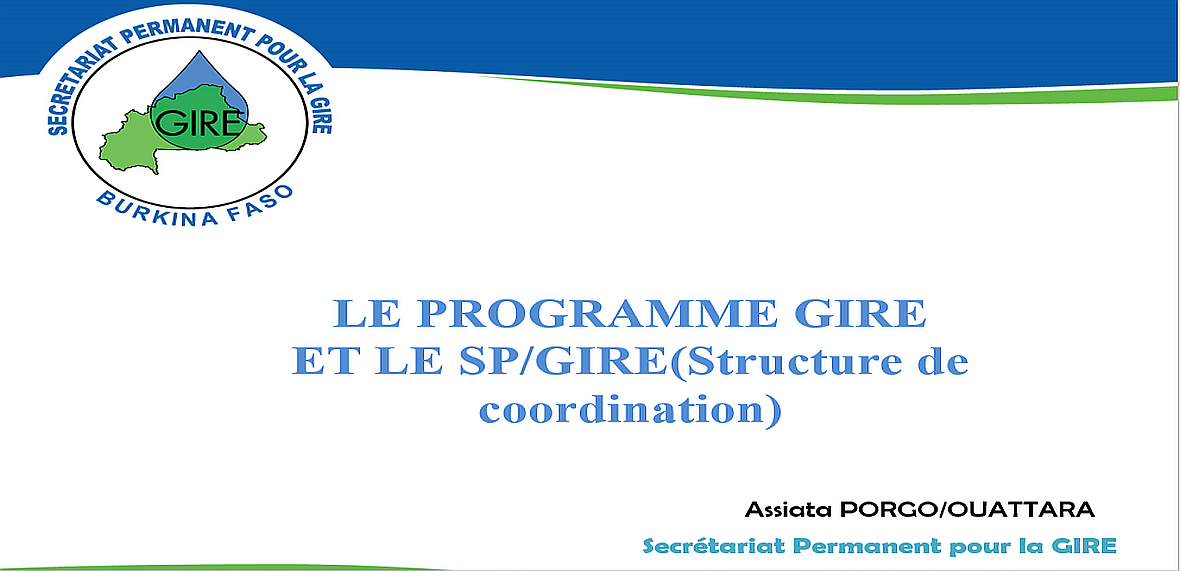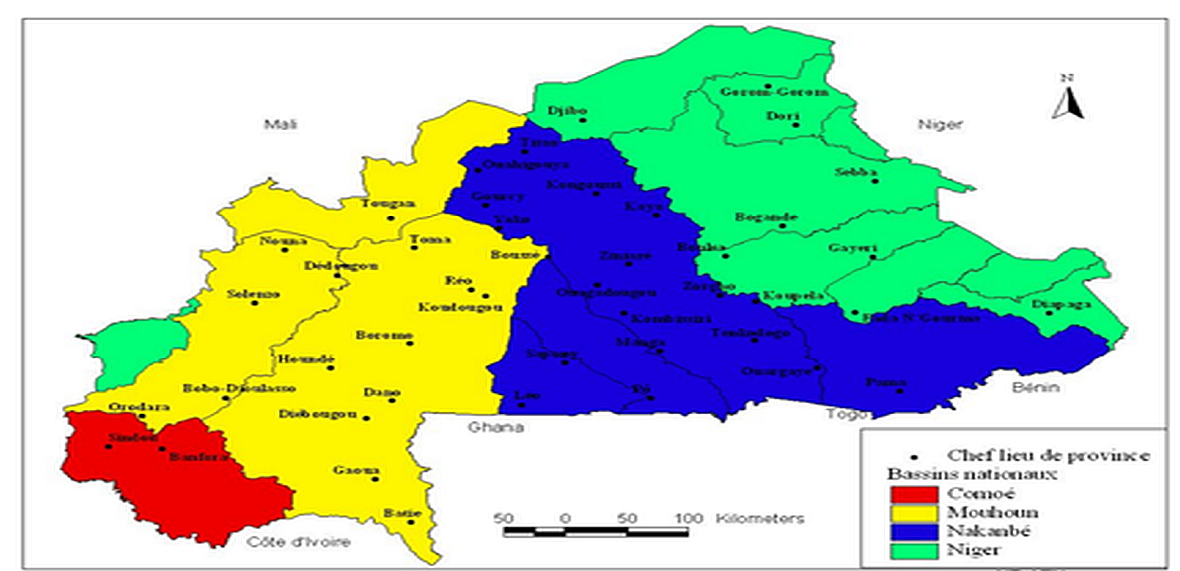The adoption and implementation of the IWRM approach has emerged as a necessity to help change behaviour for good governance and sustainable management of water resources in Burkina Faso.

In a presentation on the IWRM Programme and SP/IWRM, Mrs. Aïssata PORGO/OUATTARA of the Permanent Secretariat explained that the implementation started in 1995 was facilitated by a strong political will at the national level and an awareness at the international level as well as the strengthening of the cooperation with the Kingdom of Denmark from January 1996. To this end, on 18 September 1998, a convention was signed between Burkina Faso and the Kingdom of Denmark (Danida) for the start of the IWRM Programme on 22 March 1999 for a duration of 33 months with a completion date in December 2001.
"The IWRM Programme was intended to plan and support the transition process towards a new mode of water management in which the principles adopted by the Burkinabe Nation will be made operational," explained Mrs. OUATTARA.
The National Action Plan for IWRM (PAGIRE) had two phases (2003-2009 and 2010-2015).
- Phase I focused on building basic and anchoring capacities. It contributed to: (i) establishing the enabling environment/procedures, institutional framework, water information system; (ii) building technical and human capacities through the implementation of training, information, education, awareness raising and advocacy activities. Research and development were promoted through the implementation of several research programmes as well as the implementation of emergency/resource protection measures.
- Phase II sought to "make IWRM effective in Burkina Faso by 2015".
The National IWRM Programme (NP/IWRM), which has been underway since 2016 sets as its strategic objective to "contribute sustainably to the satisfaction of the freshwater needs of users and aquatic ecosystems". The vision defined is that "by 2030, the country's water resource is known and effectively managed to achieve the right of universal access to water and sanitation, in order to contribute to sustainable development".
The total cost of the NP/IWRM is 69.909 billion CFA francs divided between the three phases as follows:
- The first phase (2016-2020) for a total amount of 26.909 billion CFA francs.
- The second phase (2021-2025) for a total amount of 21.645 billion CFA francs.
- The third phase (2026-2030) for a total amount of 20.465 billion CFA francs.
The financing of this programme is ensured by the State budget for 22.17%, the Financial Contribution for Water (CFE) for 22.39% and technical and financial partners for 55.45%.

Mrs Aïssata OUATTARA/PORGO
